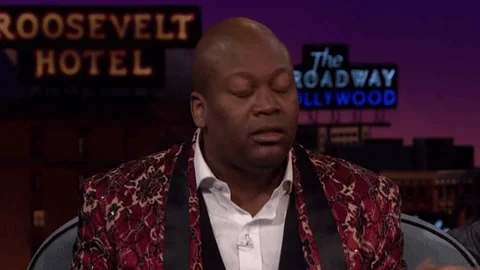Another disgusting example of how whiteness works as a mask of innocence:
—-
Nearly 3,000 of CruzzControl’s alleged bots have been linked to several hate raids, “including those targeting black and LGBTQIA+ streamers with racist, homophobic, sexist and other harassing content,” the lawsuit said. The user CreatineOverdose also allegedly “used their bot software to demonstrate how it could be used to spam Twitch channels with racial slurs, graphic descriptions of violence against minorities, and claims that the hate raiders are the KKK.”
——
The lawsuit does not identify the individuals behind the accounts, though Twitch said it will amend its complaint if it’s able to determine their legal names. But it identified CruzzControl as a person located in Baarto, Netherlands, and CreatineOverdose as a resident of Vienna, Austria.
Ugh, talk about toxic masculinity!
Such a nice side dish while dining on steaming hot white supremacy.
Great to hear they’re going after these assholes.
Here’s hoping the lawsuits lead to criminal charges.
The lawsuits are a very pretty gesture from Twitch, but don’t pose an actual solution to the hate/bot raid problem. Even if these two individuals are found guilty, it’s going to take months, if not years, for the verdict to be reached. And what exactly will that do to prevent all the other gentlepeople who’ve followed their lead from continuing to harass LGBTQ+ and/or BIPoC creators in the meantime? Nothing.
People far more knowledgeable than I am on the inner workings of Twitch software have been begging and pleading for weeks now for robust, integrated tools to prevent and combat hate raids and bot raids. They’ve even pointed out specific areas (like steps to limit automated creation of new accounts) where Twitch could act swiftly to make an impact on harassment. Apart from typical, vague promises of “be patient, we’re working on it,” we’ve seen very little from Twitch… mainly this lawsuit, which may or may not bear fruit down the line.
Yes, I know coding software is a complex process, and it’s difficult to make changes that won’t break other parts of the code along the way. But if it’s that hard, how come community members have been able to step up and create homebrew tools and panic buttons so quickly? There’s CommanderRoot, Sery Bot, and a host of other user-made helpers out there. Don’t get me wrong, they’re very good, but since they’re essentially third party add-ons, they can only do so much… and in the meantime, the hate raids and bot-followers are still at it. Hell, I don’t stream, and I’ve had four obvious bots try to follow my account in the last week.
IMHO, Twitch can and should do better; they’re not showing any clear sense of urgency to protect vulnerable streamers from abuse and harassment. Sure sounds like privilege to me.
This series, riffing on comments from pro-Confederacy Internet trolls, is pretty funny
Here’s an interesting piece about the fictional town of Mayberry, the real town it was based upon, and what an unrealistic white fantasy it was/is (based on historical events of the time and experiences of Black people who lived there):
At the beginning Jane Pauley asks, “Who hasn’t waxed nostalgic for the good old days?” My response is, “When was that?” Ted Koppel’s Q&A at the end was particularly scary, because it was so predictable.
As I recall, the show was a spin-off of The Danny Thomas Show. In that episode, Hollywood city slicker Danny basically gets pulled over in Mayberry’s speed trap and hilarity ensues (lucky for Danny that he didn’t present as Lebanese).
White “culture” indeed. Ugh.

Relatedly:
“I’m saying I don’t think that it’s real…”
So…fake, then?
And the police never showed up.
We support the troops!
It’s really hard to forge a CAC card. If you stuck it in a reader, her fingerprints, security classification etc. would be on there.

I will argue that it should be taught as both? If that makes sense… prior to the 1950s and early 60s, the focus (in the historiography written by white historians at least) tended to be lost cause mythos, written from the POV of the enslavers in a way that entirely ignored the brutality of the institution of slavery. White historians began to catch up with their Black colleagues in the 50s and 60s, writing history from the perspective of the enslaved. But we need to see how the enslavers enforced the brutal institution and how people survived it and eventually brought it down.

